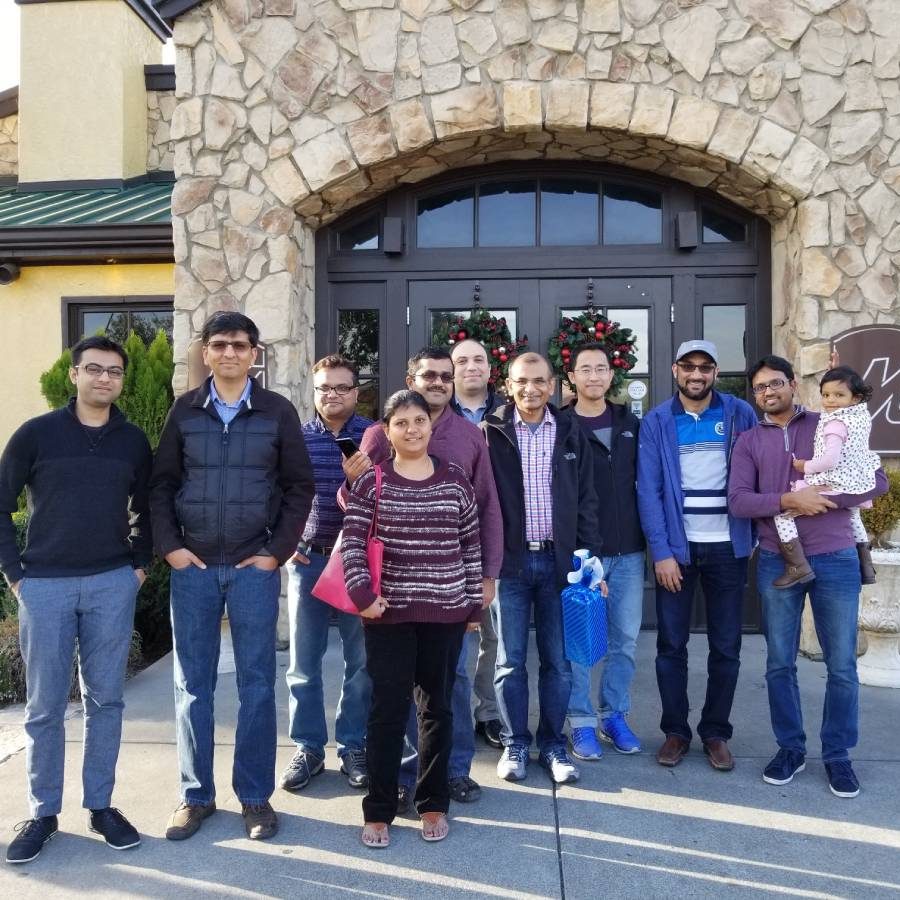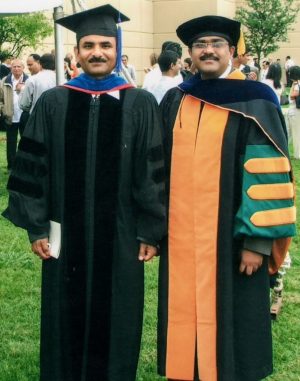Alumni Rally Around International Students
By: Daniel Steele | June 8, 2020


Nearly a month after the UT Dallas campus closed due to the coronavirus pandemic, hundreds of students were already turning to the University’s Student Emergency Fund to afford urgent expenses. Around this time the University’s faculty also learned about CARES Act restrictions that denied the allocation of federal funds to international students enrolled at U.S. colleges.
Dr. Ravi Prakash, professor of computer science in the Erik Jonsson School of Engineering and Computer Science and the Hobson Wildenthal Honors College, reflected on his own experience as an international graduate student in the U.S. and on the experiences of many of his current and former students. He decided to activate his personal network to help those in need.
“International students are a big part of our university,” Prakash said. “These students come here and go on to do great things, to become very successful. We need to make sure we take care of them.”
Prakash composed an email to several of his former graduate students, reminding them of their time at UT Dallas and asking for their support for the University’s COVID-19 relief fund. To his surprise, the email was forwarded to dozens of individuals, and more than 30 UT Dallas alumni have already contributed nearly $50,000 to the emergency fund.

One alumnus who donated and circulated Prakash’s email was Shashidhar Gandham PhD’06, co-founder and vice president of engineering of Cisco Tetration Analytics in Palo Alto, California.
“I have firsthand experience of how life can be hard when you are far from home and family members,” Gandham said. “After reading Dr. Prakash’s email, the first thought that flashed in my mind was: If a situation like this occurred 20 years ago, I would have been one of the students looking for help.”
UT Dallas currently enrolls over 9,000 students from outside the U.S., making the University one of the most popular destinations in the country for international students. Many of these students rely on loans from their home countries and part-time jobs to afford tuition and living expenses.
“These students come here assuming that they will be able to get a campus job to cover rent and food,” Prakash said. “Maybe over the summer they’ll get an internship that will give them a financial cushion for the year. When the campus shuts down, when the whole city shuts down, they don’t have this money anymore. It becomes an existential crisis for them.”
Kartik Chandran MS’98 worked alongside Prakash in the Distributed Systems Laboratory while at UT Dallas. Now a director of software engineering at Arista Networks in Santa Clara, California, Chandran identified with the difficult situation facing current international students.
“I also remember the struggles you go through as an international student,” Chandran said. “Especially in the first year, working multiple campus jobs while maintaining a course load until you can find internships in the summer. It was a real struggle to make it through, with very little room for setbacks.”
Having lived this experience, Chandran also knows the dedication and resilience of UT Dallas’ international students and the value of investing in their futures.
“They will turn into tomorrow’s professionals and leaders,” he said. “I view my contribution not as a donation, but as an investment in their talent and commitment to succeed which will absolutely pay off down the road. Who knows — I may even get to hire some of them one day!”
Ehsan Nourbakhsh PhD’13, a software engineer at Google, is another of Prakash’s former advisees who answered his teacher’s call for support. Having attended UT Dallas during the aftermath of the 2008 financial crisis, the current plight of international students resonated with his own experience.
“A lot of us were going through something similar then,” Nourbakhsh said. “International students don’t have the support of their families while they are here, they can’t just return their lease and go live at home. It puts you in a tough position.”
Like many of the alumni who donated to the Student Emergency Fund, Nourbakhsh knew that sustaining students through this crisis not only benefits students themselves, but helps drive all the good they will go on to do as alumni and professionals.
“Right now, these international students are going through a storm,” he said. “When they come out of it they will excel. They will be useful for our community, for the United States and for the tech field. I wanted to be a part of that push through to help them keep their momentum.”